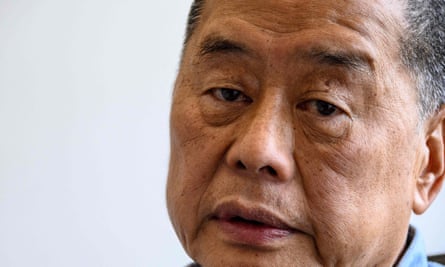[ad_1]
Hong Kong has temporarily blocked a top British human rights lawyer from representing jailed pro-democracy activist Jimmy Lai, in a trial stymied by delays and calls for an intervention from Beijing.
British King’s Counsel Timothy Owen was set to represent Lai, the founder of the now-defunct Apple Daily, who has been in jail on protest-related offences since his high-profile arrest in 2020.
Lai is accused of conspiring with others to call for an imposition of sanctions or a blockade, or engaging in hostile activities against Hong Kong or China.
He also faces a charge of collusion with foreign forces to endanger national security, and a separate sedition charge under a colonial-era law that is increasingly used to snuff out dissent.
The trial was postponed Thursday, soon after the court was told that Hong Kong’s immigration department had withheld Owen’s application for an extension of his work visa. The British barrister says he currently has a visa for another case.
Lai, 74, faces a possible life sentence if convicted under a national security law imposed by China’s ruling Communist party on the former British colony.
Beijing imposed the security law after pro-democracy protests that began in 2019.
After a local court earlier said Owen could represent Lai, Hong Kong’s leader asked China’s top lawmaking body to decide whether overseas lawyers could participate in national security cases.
The government argued that letting overseas lawyers work on national security cases posed a risk, as there was no way to ensure the confidentiality of state secrets.

When the court of final appeal sided against the government on Monday, city leader John Lee requested China’s National People’s Congress Standing Committee decide on the matter.
This was the first time Hong Kong invoked the mechanism under the law that allows Beijing to have the final say on how it operates.
The trial has been adjourned until 13 December, pending any move from Beijing.
The immigration department has been contacted for comment.
Hong Kong was promised a “high degree of autonomy” when it was returned to China in 1997, but Beijing and its local allies have rolled back western-style civil rights, eroding the territory’s appeal as a global business centre.
Lee, Hong Kong’s former security chief who oversaw the crackdown, said on Tuesday that Beijing was highly concerned and would act “as soon as possible”, but gave no timeline for an interpretation that would overrule the court judgment.
[ad_2]




